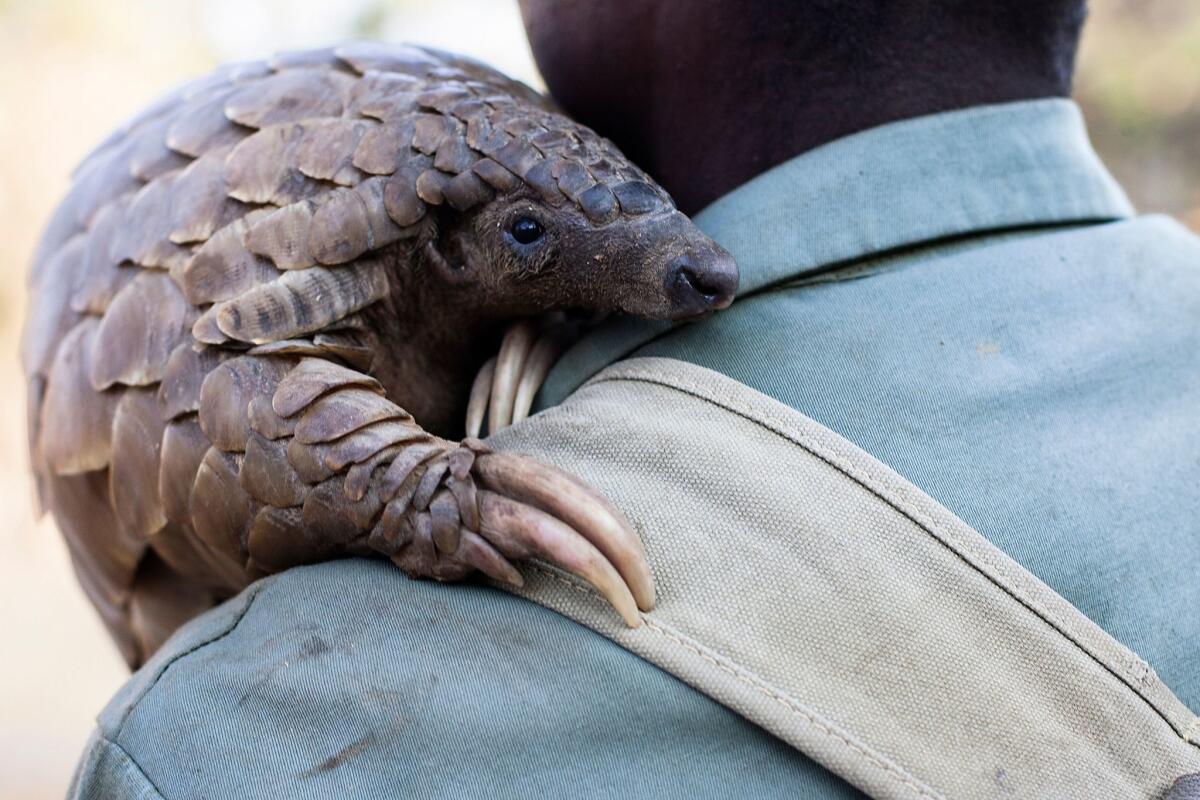Trade ban approved for the pangolin — the world’s most heavily trafficked mammal

The pangolin is described as the most heavily trafficked mammal in the world. The nocturnal, ant-eating animal got a much-needed boost Wednesday at a U.N. wildlife conference that approved a ban on trade in all eight species of Asian and African pangolins.
The small creature is heavily poached for its meat and scales that are used in traditional medicine in parts of Asia. There is also a market for pangolin products in Africa.
Delegates approved a ban on trade in seven pangolin species by consensus at a meeting of the Convention on International Trade in Endangered Species of Wild Fauna and Flora, or CITES.

Meet the pangolin, the most-poached and illegally trafficked mammal in the world.
Debate on trade in one of the Asian species of pangolin went to a vote and only Indonesia objected. China, a major consumer of pangolins, as well as Oman, Japan, Namibia and Madagascar, abstained.
The pangolin decision is expected to be approved at a plenary session next week.
The meeting of CITES, which regulates wildlife trade, ends Oct. 5. About 180 countries are participating in the conference.
CITES previously required controls on any trade in Asian pangolins in an effort to ensure their survival. The new decision effectively prohibits virtually all commercial trade, allowing it only in what CITES calls “exceptional circumstances.”
Pangolins are the most “heavily trafficked mammal in the world,” said Colman O’Criodain, an expert with the WWF conservation group. He said the next step is for countries to implement the ban on trade, as well as move against illegal trafficking in pangolins.
More than 1 million pangolins have been slaughtered in the last decade, according to some estimates.
Pangolin scales are made of keratin, a protein also found in human fingernails.
Nearly 20 tons of pangolin scales were seized from illegal shipments originating from Africa between 2013 and this year, according to U.S. officials. They said the scales came from as many as 39,000 pangolins.
The CITES meeting seeks to protect “iconic” species such as the lion and elephant, but it also debates the survival of lesser-known species such as the pangolin, said Dan Ashe, director of the U.S. Fish and Wildlife Service.
“There are literally dozens to hundreds of species being considered here that you or I would probably not even recognize,” Ashe said. “That’s the magic of this convention.”
MORE WORLD HEADLINES:
The Israeli-Palestinian reconciliation Shimon Peres envisioned is as elusive as ever
Iran upholds 16-year sentence for anti-death penalty campaigner Narges Mohammadi
As drought grips Iran, farmers lament loss of a way of life
More to Read
Start your day right
Sign up for Essential California for news, features and recommendations from the L.A. Times and beyond in your inbox six days a week.
You may occasionally receive promotional content from the Los Angeles Times.






